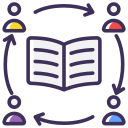AI in Education: Crafting Personalized Learning Paths
The rapid evolution of artificial intelligence in recent years has paved the way for transformative changes in education, especially in the development of personalized learning experiences. AI-driven systems are now capable of analyzing student performance data, understanding individual learning needs, and adapting educational content to maximize student engagement and success. By leveraging this technology, educators and institutions can create truly tailored learning paths that address diverse abilities, interests, and goals. This dynamic approach not only enhances academic outcomes but also fosters a more inclusive and empowering educational environment for students from all backgrounds.
The Concept of Personalization
Personalization in education refers to the practice of catering instructional content and pace according to each student’s unique profile. This includes consideration of individual interests, knowledge gaps, strengths, and learning styles. Artificial intelligence facilitates this at an unprecedented scale, using sophisticated algorithms to analyze real-time data and adjust curriculum accordingly. Unlike traditional homogeneous classrooms, AI-powered personalization enables students to access resources tailored precisely to their needs, ensuring maximum engagement and comprehension. The result is a more equitable educational experience where each learner’s journey is uniquely crafted, supporting not only academic growth but also fostering greater intrinsic motivation and self-confidence.
AI’s Role in Shaping Personalized Learning
Artificial intelligence acts as the brain behind personalized learning environments. Machine learning algorithms can identify subtle patterns in student behavior, test scores, and interaction with digital materials, allowing them to predict learning outcomes and recommend targeted interventions. These systems continuously learn and adapt, becoming increasingly effective the more they are used. AI can also automate the process of generating and delivering appropriate content, freeing educators from routine administrative tasks so they can focus on mentorship and facilitation. Ultimately, AI’s role is to support both teachers and students, creating a synergy that lifts every participant in the educational process.
The Shift from Traditional to Personalized Education
Historically, education has relied on a standardized, one-size-fits-all approach. With the advent of AI, there is a significant shift toward more flexible, differentiated learning experiences. This transformation challenges longstanding assumptions about assessment, grading, and instructional delivery. Instead of progressing through material at a uniform pace, students can advance as they master concepts, receive immediate feedback, and revisit challenging topics as needed. This shift not only promotes deeper understanding and retention but also accommodates diverse learning backgrounds and paces, making education more responsive to each student’s needs.
Data-Driven Insights: The Foundation of Adaptivity
Every student generates a unique trail of digital footprints as they engage with educational content. AI systems capture this data, which includes quiz responses, reading habits, time spent on various activities, and participation in forums or discussions. This robust dataset allows for the nuanced analysis of learning patterns and knowledge gaps. By harnessing this information, AI can pinpoint exactly where a student excels or struggles and respond with tailored recommendations. The ability to draw meaningful insights from these vast datasets marks a significant advancement in personalizing education at scale.

Adaptive Curriculum Design for Individual Growth
Dynamic Content Delivery
AI’s ability to analyze student data allows for the dynamic delivery of lessons and materials. Rather than presenting a fixed sequence of topics, AI curates content based on each learner’s current understanding and pace. If a student masters a concept quickly, the system can introduce more advanced material; conversely, it can provide remedial resources or alternative explanations for those who struggle. This flexibility ensures that no learner is left behind or held back, making the learning process significantly more efficient and engaging.
Customized Assessments and Testing
Traditional assessments often use standardized formats that may not accurately measure a student’s true understanding or abilities. AI enables the creation of customized assessments tailored to individual learning paths, focusing on areas of growth and challenge specific to each learner. These adaptive tests can vary in question type, difficulty, and content, providing a more precise measure of progress. As a result, students receive assessments that are both relevant and supportive, while educators gain a clearer picture of each student’s strengths and development needs.
Continuous Content Optimization
Curricula are traditionally updated at infrequent intervals, but with AI, content optimization becomes an ongoing process. Machine learning algorithms analyze student performance in real-time to identify which materials are most effective and which need modification. This iterative process means that curricula remain relevant, effective, and aligned with both educational objectives and evolving student needs. As a result, the learning experience becomes more engaging and successful over time, as the system learns alongside the students it serves.
Empowering Educators Through Intelligent Tools
Automating Administrative Workflows
Educators often spend significant time on grading, tracking attendance, and managing other administrative tasks. AI-powered tools can automate these processes, freeing teachers to devote more energy to creative, high-impact teaching and student engagement. By handling repetitive chores efficiently and accurately, AI reduces burnout and improves job satisfaction among educators. This shift allows teachers to spend more time guiding students, personalizing instruction, and fostering a rich learning environment that goes beyond rote delivery of content.
Enhancing Instructional Decision-Making
With access to comprehensive data analysis and predictive insights, educators can make more informed decisions about instructional strategies. AI provides teachers with detailed reports on student progress, identifies who may need additional support, and suggests targeted interventions. Teachers can adapt lesson plans and groupings dynamically, ensuring that each student receives the support and challenge best suited to their needs. This data-driven approach enhances teaching efficacy and helps cultivate an environment where all learners have the opportunity to succeed.
Facilitating Professional Development
AI is not only a tool for supporting students but also for advancing teachers’ professional growth. Intelligent platforms can recommend relevant courses, workshops, or instructional resources based on an educator’s interests and areas for improvement. By analyzing classroom data, AI can identify skill gaps and strengths, making personalized recommendations for continuous professional development. Educators can thus stay up to date with the latest pedagogical strategies and technological advancements, ensuring that their teaching practices remain effective and inspiring.

Overcoming Challenges in Implementation
With the reliance on student data comes a heightened responsibility to ensure its privacy and security. Educational institutions must implement robust measures to protect sensitive information from unauthorized access, breaches, or misuse. Ethical considerations also play a crucial role, requiring transparency in how data is collected, stored, and utilized by AI systems. Effective policies, regular audits, and adherence to regulatory standards are necessary to safeguard trust between students, educators, and technology providers.
Student Agency and Motivation in AI-Powered Learning
Encouraging Self-Paced Progress
AI-powered systems allow students to progress through material at their own speed, promoting ownership over their learning journey. Learners can spend more time on challenging concepts, revisit material as needed, and accelerate when they feel confident. This flexibility reduces stress and frustration for those who need more time, while allowing advanced students to stay challenged and engaged. By honoring individual pace, AI cultivates a culture of lifelong learning where students are empowered to pursue mastery.
Goal-Setting and Personalized Pathways
AI helps students establish, track, and achieve personalized academic goals. Digital platforms can guide learners in setting realistic and meaningful objectives based on their strengths, interests, and aspirations. Progress dashboards and milestone tracking provide ongoing visual feedback, reinforcing a sense of accomplishment. The ability to chart and follow a unique path encourages planning, perseverance, and resilience, all key attributes of successful, self-directed learners.
Enhancing Engagement Through Adaptive Content
One major advantage of AI-driven personalization is the delivery of content that continuously adapts to maintain student interest and motivation. By analyzing engagement patterns, interests, and learning preferences, AI can recommend materials that resonate with each individual, from interactive simulations to relevant real-world examples. This adaptability makes learning more enjoyable and immersive, sparking curiosity and driving deeper exploration of subject matter. Ultimately, adaptive content keeps students invested in their own growth and discovery.
AI’s capabilities are set to be enhanced through integration with other cutting-edge technologies such as augmented reality (AR), virtual reality (VR), and natural language processing (NLP). These innovations enable immersive, interactive learning experiences that cater to different learning styles. For instance, AR/VR can make abstract concepts tangible and accessible, while NLP can facilitate natural, conversational tutoring. The convergence of AI and these technologies promises to redefine how educational content is created, delivered, and experienced, offering personalized pathways that are both engaging and effective.
